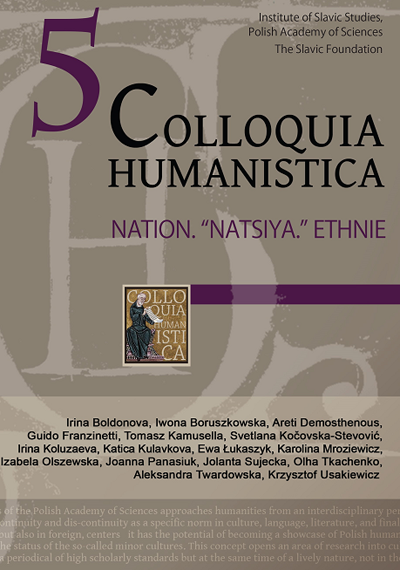Dzieje normatywnej dychotomii języka i dialektu: Od greko-łacińskich źródeł po państwa etnicznojęzykowe Europy Środkowej
The History of the Normative Opposition of “Language versus Dialect”: From Its Graeco-Latin Origin to Central Europe’s Ethnolinguistic Nation-States
Author(s): Tomasz Dominik KamusellaSubject(s): History, Language and Literature Studies, Cultural history, Applied Linguistics, Special Branches of Philosophy, Sociology, Social history, Language acquisition, Philosophy of Language, Social development, Sociology of Culture, Philology
Published by: Instytut Slawistyki Polskiej Akademii Nauk
Keywords: language; dialect; a value-free; Immanuel Kant; classical Greek; classical Latin; renaissance; Latin; ethnic group; Central Europe;
Summary/Abstract: The concept of “a language” (Einzelsprache, that is, one of many extant languages) and its opposition to “dialect” (considered as a “non-language,” and thus subjugable to an already recognized language merely as “its” dialect) is the way people tend to think about languages in the West today. It appears to be a value-free, self-evident conception of the linguistic position. So much so that the concept of “language” was included neither in Immanuel Kant’s system of categories, nor in the authoritative Geschichtliche Grundbegriffe: Historisches Lexikon zur politisch sozialen Sprache in Deutschland. This paper sketches the rise of the “dialect vs language” opposition in classical Greek, its transposition onto classical Latin, and its transfer, through medieval and renaissance Latin, to the early modern period. On the way, the Greek and Latin terms for “language” (and also for “dialect”) sometimes functioned as synonyms for peoples (that is, ethnic groups), which – importantly – contributed to the rise of the normative equation of language with nation in the early nineteenth century. It was the beginning of the ethnolinguistic kind of nationalism that prevails to this day in Central Europe.
Journal: Colloquia Humanistica
- Issue Year: 2016
- Issue No: 5
- Page Range: 164-188
- Page Count: 25
- Language: English

